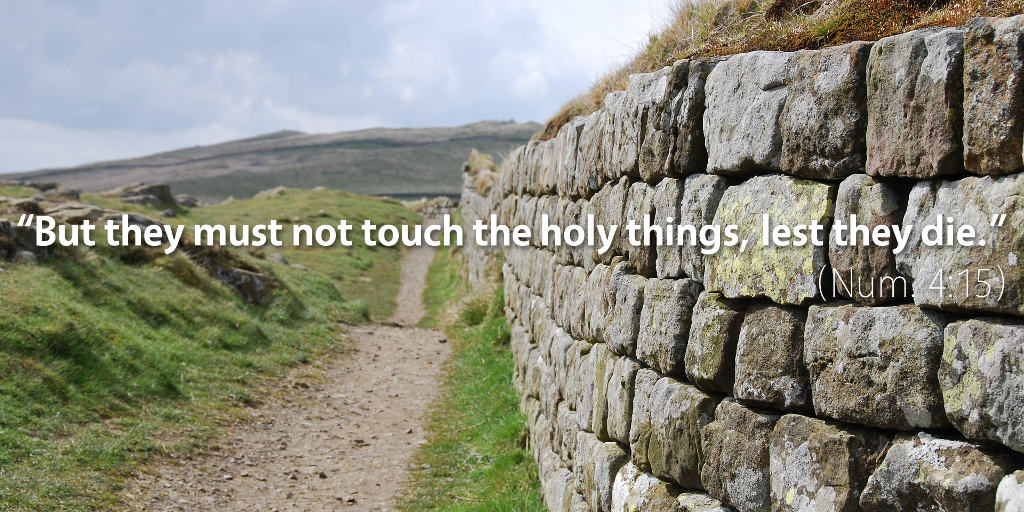Bible Readings for April 27th
Numbers 4 | Psalm 38 | Song of Songs 2 | Hebrews 2
As we continue to read through the book of Numbers, we need to keep in mind that Israel is still encamped at Mount Sinai at this point, just as they have been since Exodus 19. The second half of the book of Exodus, all of Leviticus, and the first several chapters of Numbers together comprise one long scene in the Bible.
But by Numbers 10, Yahweh will instruct Israel to break camp. We see in Numbers 4, then, the instructions that God gives to his people about how to move the camp.
First, the priests were to prepare the tabernacle for transportation by carefully covering up the holy things (Num. 4:5–14). This was important since it would be the Kohathites who would carry the furniture to the next campsite (Num. 4:15), and the non-priestly Kohathites were not allowed to touch or even look upon the holy things in the tabernacle, even briefly, lest they die (Num. 4:15, 17–20).
Before the Kohathites gathered the furniture, however, the Gershonites came to gather the fabrics of the tabernacle, and the Merarites came to gather the supporting pegs, bases, poles, and so on. After the first three tribes—Judah, Issachar, and Zebulun—set out (Num. 10:14–16), the Gershonites and the Merarites followed (Num. 10:17) while the Kohathites were gathering up the furniture, giving the Gershonites and Merarites time to pitch the tent of the tabernacle before the Kohathites arrived with the furniture (Num. 10:21).
Yahweh had brought the Levites near to himself (Num. 3:6), not to serve as priests, but to assist the priests with protecting and preserving the sanctity of Yahweh and his tabernacle by camping directly around the tabernacle (Num. 1:53), by guarding the entrance of the tabernacle from any outsider (Num. 3:10), and by tearing down, transporting, and re-pitching the tabernacle from one campsite to another (Num. 4).
The many intricate, detailed rules for organizing the physical space of Israel’s camp teach us two things. First, we learn (again) that Yahweh is a holy God, whose holiness must be carefully guarded for the protection of the people, because God’s holy wrath would consume the unclean sinners who violated it. Second, we learn that it is the highest privilege possible to be brought near to Yahweh, as the Levites were (Num. 3:6).
This is the reason that Jesus came into the world: “But now in Christ Jesus you who once were far off have been brought near by the blood of Christ” (Eph. 2:13). Brothers and sisters, we enjoy privileges in Christ that the Levites could not have imagined.
Rejoice! You have been brought near to God, not by rules and regulations that you must keep, but by nothing less than the precious blood of Christ that he has shed for you!
Podcast: Play in new window | Download (5.2MB) | Embed
Subscribe: Apple Podcasts | RSS | More

Scripture quotations are from The Holy Bible, English Standard Version copyright © 2001 by Crossway Bibles, a division of Good News Publishers. Used by permission. All rights reserved.


